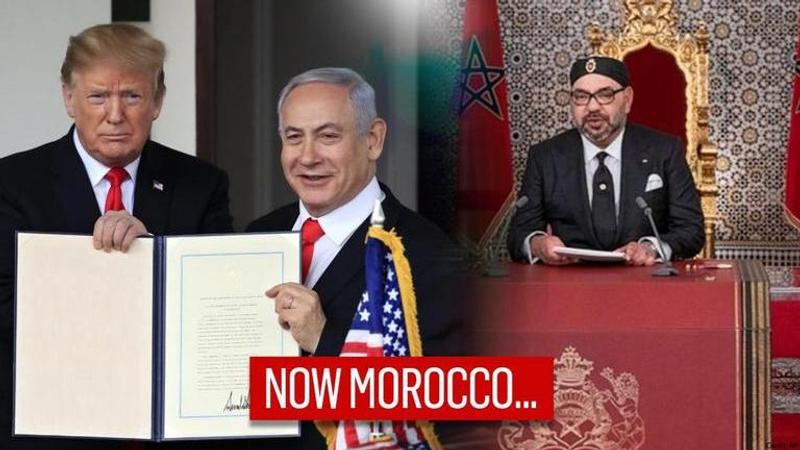Published 12:08 IST, December 11th 2020
Morocco to normalise ties with Israel as US agrees to its sovereignty over Western Sahara
Joining the list of Arab countries recognising the state of Israel in 2020, Morocco on December 10 has agreed to normalise relations with the Jewish nation

Joining the list of Arab countries recognising the state of Israel in 2020, Morocco on December 10 has agreed to normalise relations with the Jewish nation in a US-brokered deal. US President Donald Trump made the announcement as the news came amid reports of a meeting between Saudi Prince Salman and Israel PM Netanyahu. The White House said that Trump and Morocco's King Mohammed VI had agreed that Morocco would "resume diplomatic relations between Morocco and Israel and expand economic and cultural co-operation to advance regional stability."
The deal with Morocco assumes significance as the United States has agreed to recognise Moroccan sovereignty over Western Sahara, an area that was a bone of contention for a long time. A former Spanish colony, it was annexed by Morocco in 1975 and the region's Indigenous population under the 'Polisario Front' has waged a decades-long struggle for independence. The White House said that Trump in a phone call with the Moroccan King "reaffirmed his support for Morocco's serious, credible, and realistic autonomy proposal as the only basis for a just and lasting solution to the dispute over the Western Sahara territory and as such the President recognised Moroccan sovereignty over the entire Western Sahara territory."
Trump said, "Another HISTORIC breakthrough today! Our two GREAT friends Israel and the Kingdom of Morocco have agreed to full diplomatic relations – a massive breakthrough for peace in the Middle East!" In a televised address, Israeli Prime Minister Benjamin Netanyahu thanked Morocco's King and hailed the agreement. He said that the people of Israel and Morocco have had a "warm relationship in the modern period". Morocco's King said the "measures do not in any manner affect Morocco's ongoing and sustained commitment to the just Palestinian cause."
In October this year, taking the world by surprise, Israel and United Arab Emirates (UAE) announced that they were establishing full diplomatic relations in a US-brokered deal called the Abraham Accord. UAE, thus, became the third Arab country and the first Gulf nation after Egypt and Jordan to establish relations with Israel. Soon after, Bahrain followed UAE and signed a ''peace deal'' with Israel. Moreover, the following month, Israel and Sudan agreed to normalize their relations and in quid pro quo for another Arab nation's recognition of Israel, the United States said it would remove Sudan from its State Sponsors of Terrorism list.
Relation of Israel with other Arab countries
The Jewish state of Israel was formed in 1948, and since then the country has fought eight wars with its Arab neighbours. These wars predominantly stemmed from the conflict between Palestine and Israel. After World War II, the demand for a homeland for Jews in the Arab dominated Palestine grew. Back then, Palestine was under the British mandate, but when it ended in 1947, the United Nations (UN) proposed an Arab-Jewish partition of Palestine. This partition plan mandated 53 percent of the land to the Jewish-majority state and 47 percent to the Palestinian-majority state. The Arab-dominated West Asia did not accept a Jewish nation giving rise to conflict in the region. While Egypt and Jordan established diplomatic ties later, other Arab countries are of opinion that they would withhold recognition till the formation of Palestinian state in the West Bank and Gaza Strip. However, there has been a major shift recently.
Incidentally, Trump had been nominated for the 2021 Nobel Peace Prize by Christian Tybring-Gjedde, a member of the Norwegian Parliament, for brokering the deal for the normalisation of ties between the Israel and UAE.
Updated 12:08 IST, December 11th 2020




